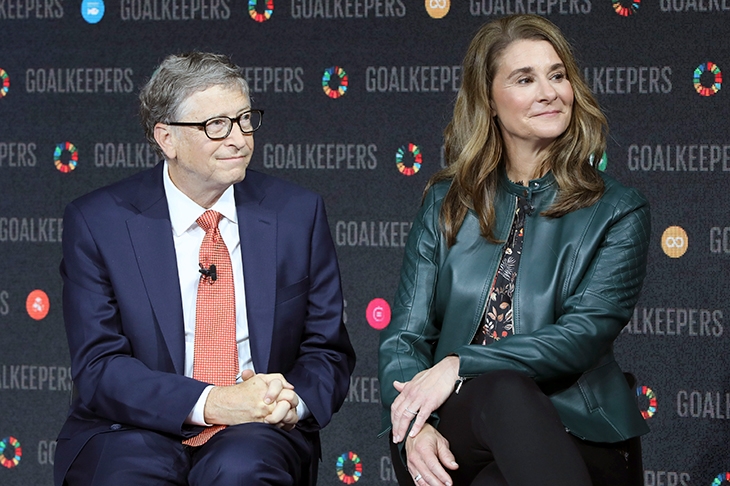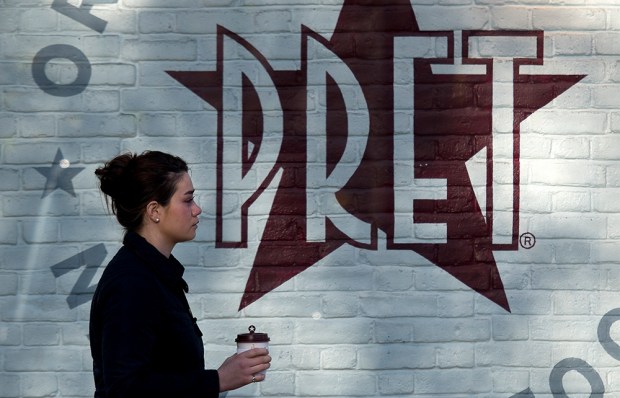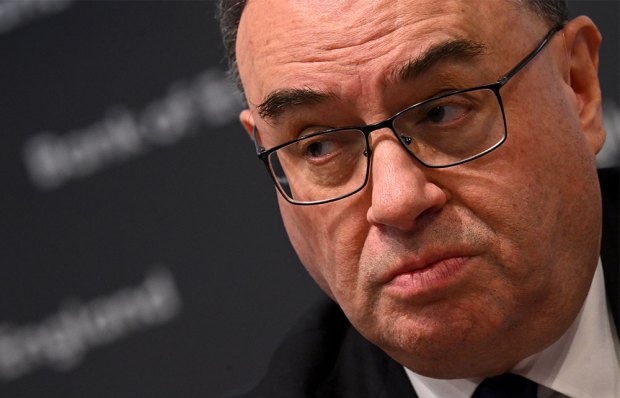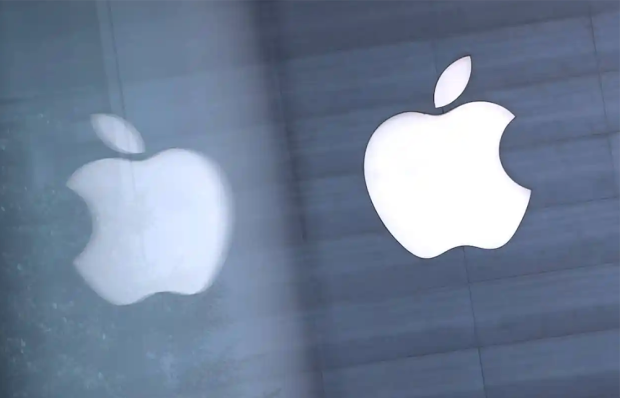‘We are seeing very substantial inflation,’ the great investor Warren Buffett told shareholders in his master company Berkshire Hathaway at their online annual meeting last weekend. He was talking chiefly about the housebuilding businesses in his port-folio, hit by rising material costs in what he called a ‘red hot’ economic recovery. But his remarks align him on a broader front with jittery bond investors and big-name economists, such as Larry Summers of Harvard, who have fuelled the US ‘inflation scare’. And if it’s coming over there — pessimists whisper — surely it’s coming over here?
Maybe, but let’s keep this in perspective. Headline US inflation is 2.3 per cent but Fed chairman Jerome Powell says he expects it to settle back to 2 per cent, a level most central banks regard as healthier than no inflation at all. In the UK we’re below 1 per cent; the Bank of England’s Monetary Policy Committee foresaw the rate rising ‘quite sharply’ by now — but only towards the Bank’s own 2 per cent target, where it’s expected to stay for the next two years.
So the projected range on both sides of the pond is narrow compared with, say, 1970-90, when UK consumer price increases averaged 10 per cent per year. That was the kind of inflation that’s seriously de-stabilising and socially corrosive. As for ‘hyper-inflation’, a risk you’ll hear bandied by doomsters, it happens — but lately only in Venezuela. What we’re talking about here and now is a post-Brexit, post-pandemic price blip. Or am I being complacent?
What’s curious is that, just as the central bank money-printing known as quantitative easing proved surprisingly non–inflationary after the 2008 crisis, likewise the current surge of government borrowing to fund pandemic support doesn’t seem to be moving the dial either. So much for conventional economic theory. But a supply crunch in physical goods, at a moment when so much pent-up spending power is about to be released: that’s different — and a lot simpler to understand.
Oil, we’re told, is heading back to $80 a barrel from its 2020 dive below $20. China is hoovering up the world’s commodities. Microchips are in short supply. Palm oil, used in many consumer products, is at prices not seen since 2008; packaging materials are at all-time highs. Weather, labour shortages, border hold-ups, shipping disruptions and Covid where it’s raging are all afflicting manufacturers, who are wondering how much and how soon they can raise output prices to match. A blip, yes, but a spikier one than central bankers may be expecting.
Melinda’s influence
The end of the 27-year marriage of Bill and Melinda Gates looks tidier, so far, than Amazon founder Jeff Bezos’s parting from his ex-wife MacKenzie Scott, but will no doubt turn into another fee fountain for Seattle’s legal fraternity. Melinda French was a manager at Microsoft, the software giant created and driven by Bill, when the two met in 1987 — and is widely credited with turning him from a hardcore techie and ruthless competitor into a mellower, more admirable human being.
The $50 billion charity they created together has become the flagbearer for ‘venture philanthropy’, which is the application of large-scale private funds to address global problems, particularly in healthcare, that governments and market forces fail to solve. Critics say that concept pays too much heed to the whims of the super-rich: the Gates’s foundation has made huge contributions to the fight against malaria, HIV/Aids and other infectious diseases, but Bill won no friends when he said recently that intellectual property rights for Covid vaccines should not be shared with developing nations such as India, apparently because their factories might not be safe.
Bill was right when he said of Melinda two years ago: ‘She’s better with people than I am.’ Let’s hope she can still keep him in check at the Foundation even as they ‘no longer grow together as a couple’.
Nonagenarians rule
I’m sorry to see Warren Buffett, at 90, naming his successor at Berkshire Hathaway: vice-chairman Greg Abel is now officially next in line. Sorry because Buffett has been such great value, to investors for his stockpicking and to all of us for his philosophy that responsible investment is not about speculation but about directing long-term capital towards well-managed companies that generate wider social benefits; and that disproportionate fortune obliges the rich to give to good causes, including in his case, billions to the Bill and Melinda Gates Foundation.
In this year’s speech to shareholders, Buffett was down on Wall Street’s current mania for Spacs, the ‘blank cheque companies’ that harvest investor cash in order to chase unspecified future acquisitions — quoting Keynes on what happens when ‘the capital development of a country becomes a by-product of the activities of a casino’. And his veteran business partner Charlie Munger really let rip on the subject of bitcoin as ‘a financial product invented out of thin air … contrary to the interests of civilisation [but] useful to kidnappers and extortionists’. Charlie is 97 but I hope he’ll still be on the platform long after Warren retires.
Waiting for sunshine
I’ve been neglecting my promise to leaven this column with restaurant tips, now that outdoor eating is OK again. I enjoyed pavement carbonara at Rossopomodoro in Covent Garden, and a bargain set lunch in the courtyard of Gee’s in Oxford — but frankly it’s too bloody cold and I’m sufficiently brainwashed to feel a tinge of guilt about sitting under those CO2-blasting outdoor gas heaters. Perhaps instead I should sample a vegan takeaway from one of the ‘climate emergency centres’ the Guardian tells me are springing up righteously in high-street spaces vacated by the likes of William Hill and Homebase. On second thoughts, I’ll just wait for the sun to come out again.
Got something to add? Join the discussion and comment below.
Get 10 issues for just $10
Subscribe to The Spectator Australia today for the next 10 magazine issues, plus full online access, for just $10.
You might disagree with half of it, but you’ll enjoy reading all of it. Try your first month for free, then just $2 a week for the remainder of your first year.















Comments
Don't miss out
Join the conversation with other Spectator Australia readers. Subscribe to leave a comment.
SUBSCRIBEAlready a subscriber? Log in